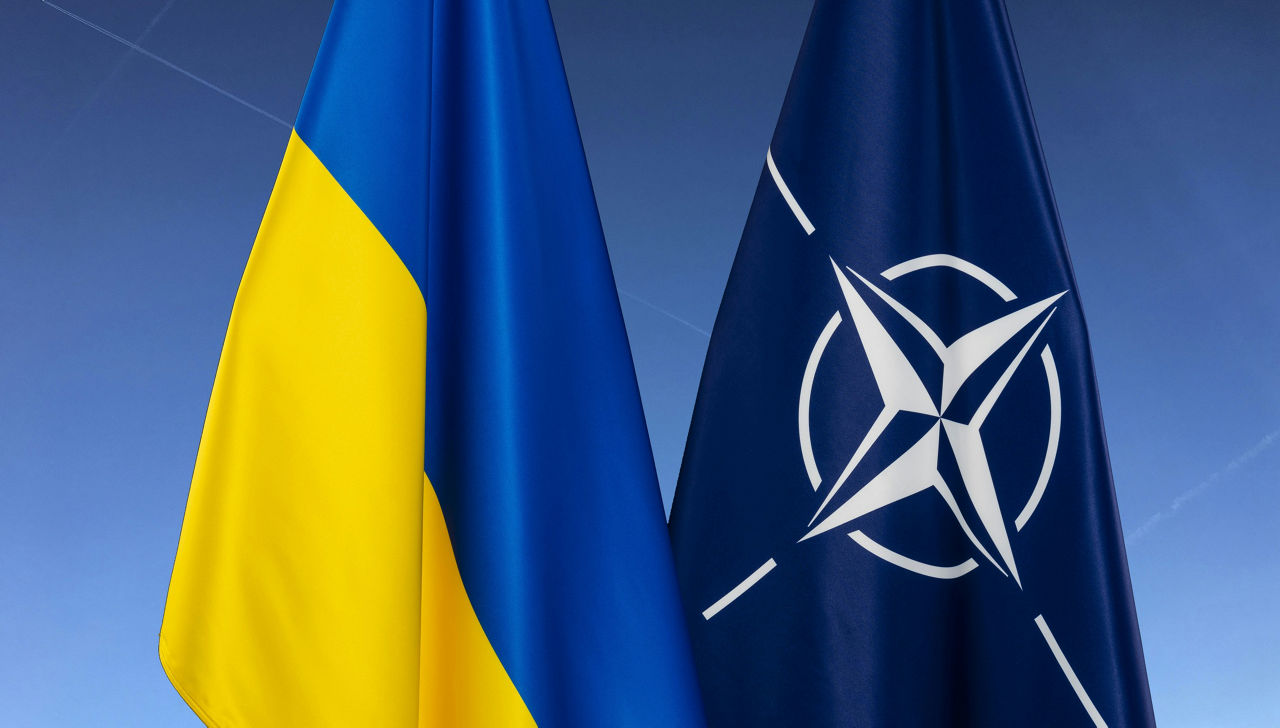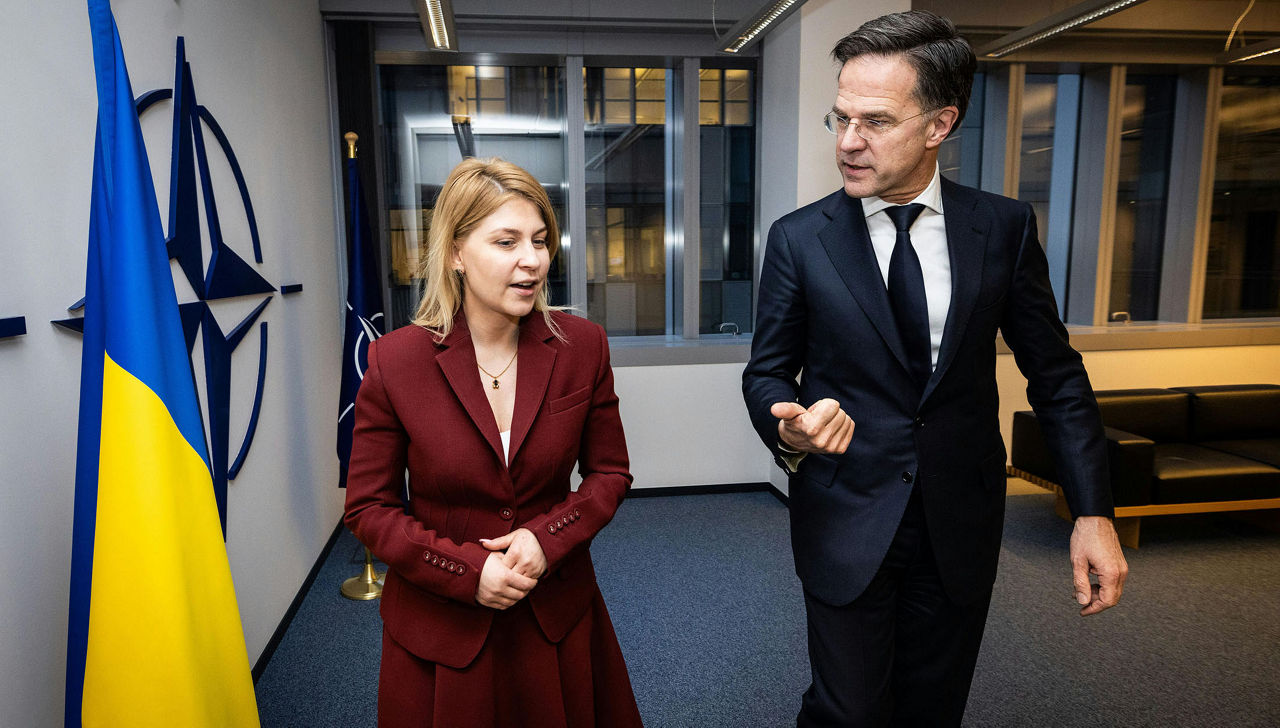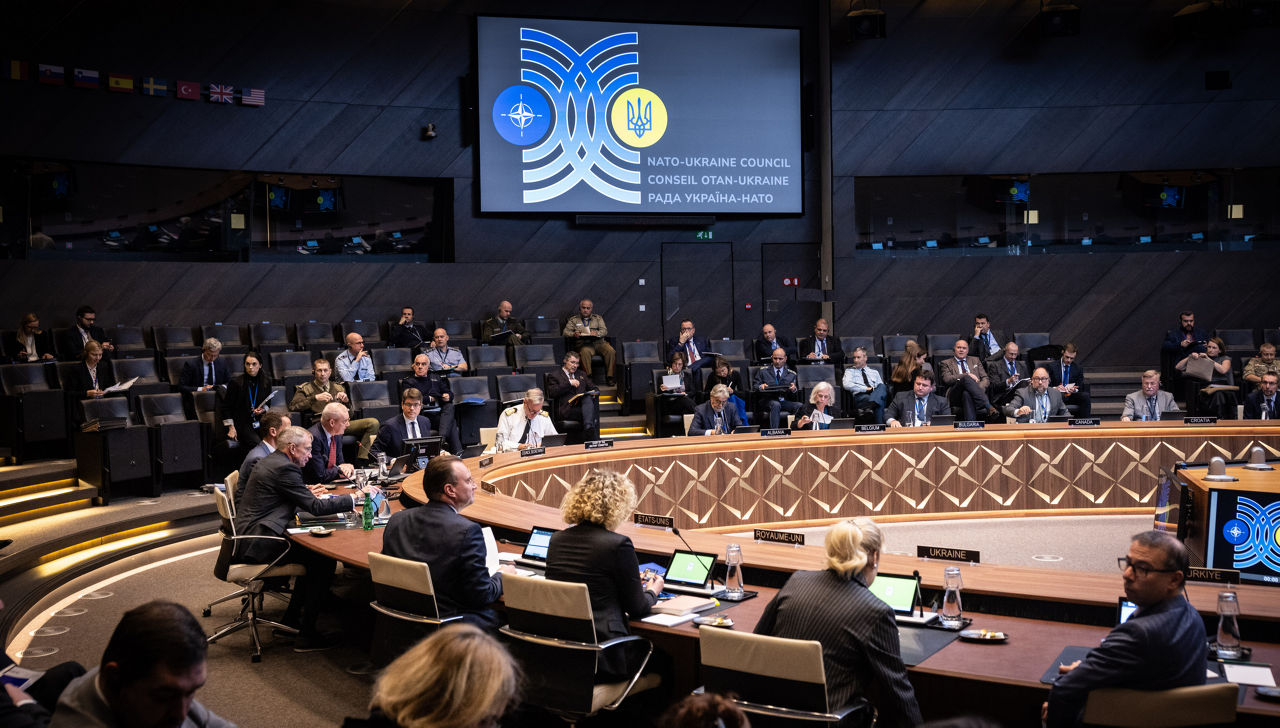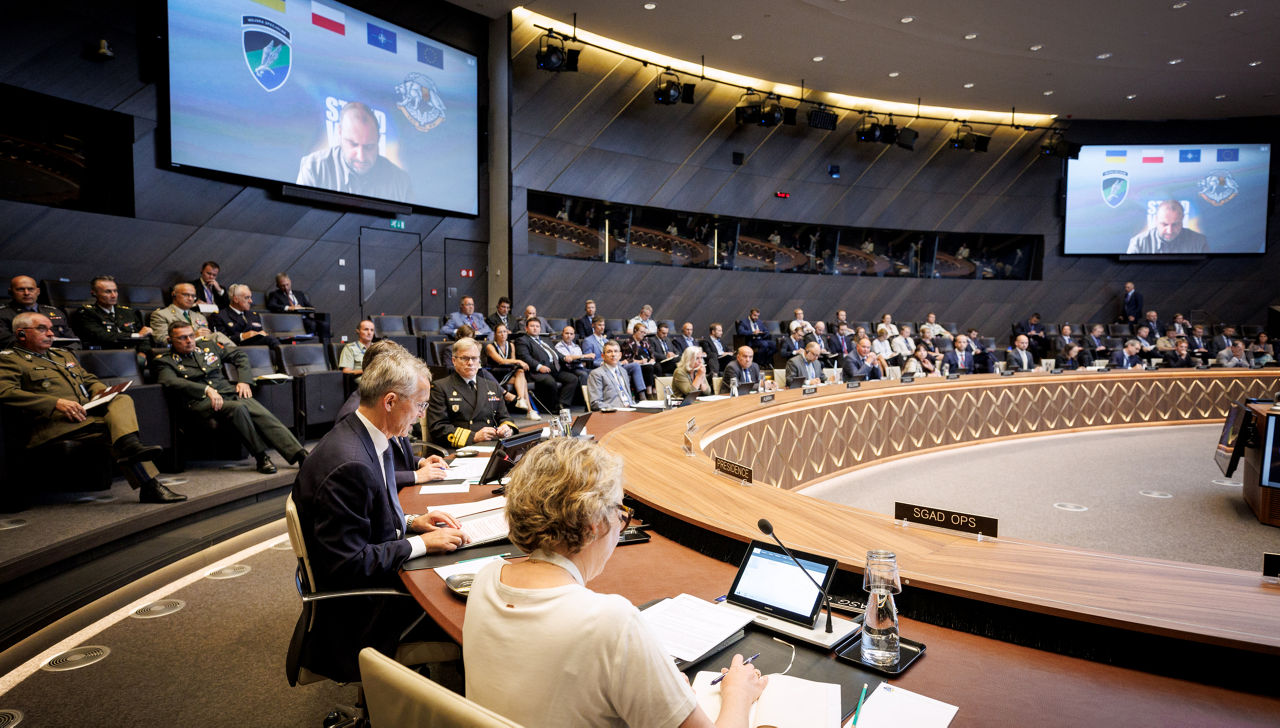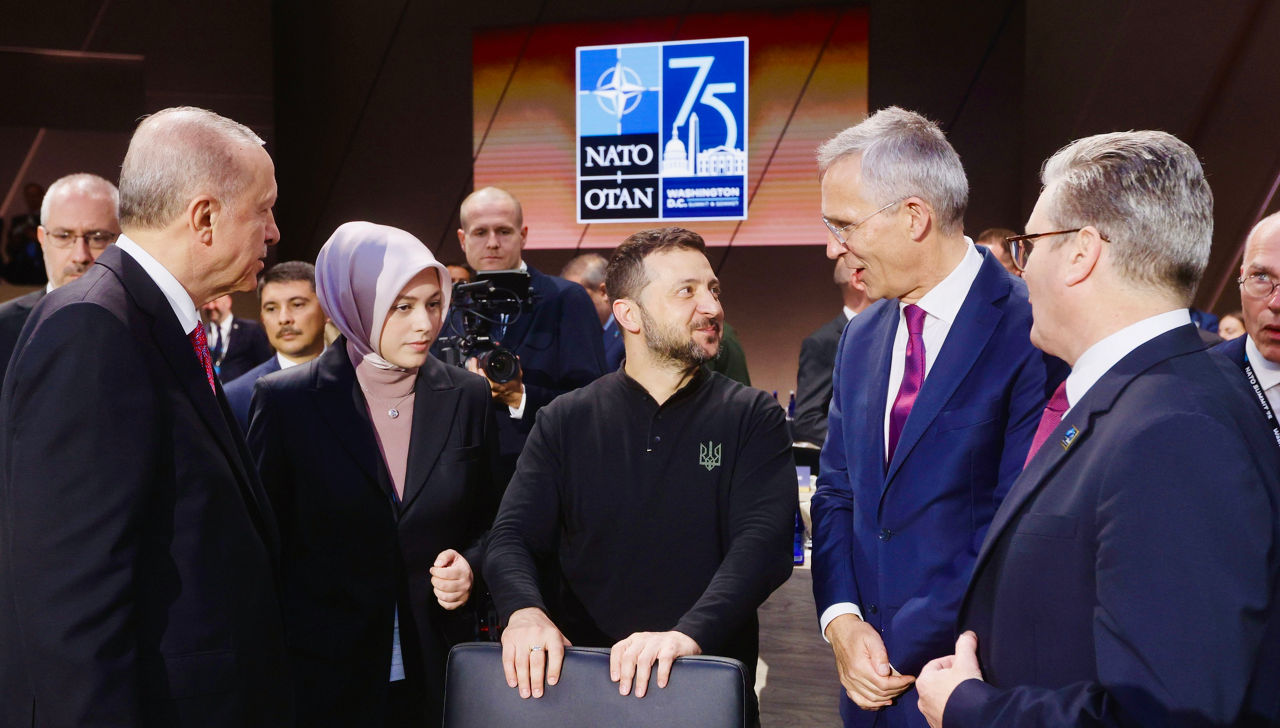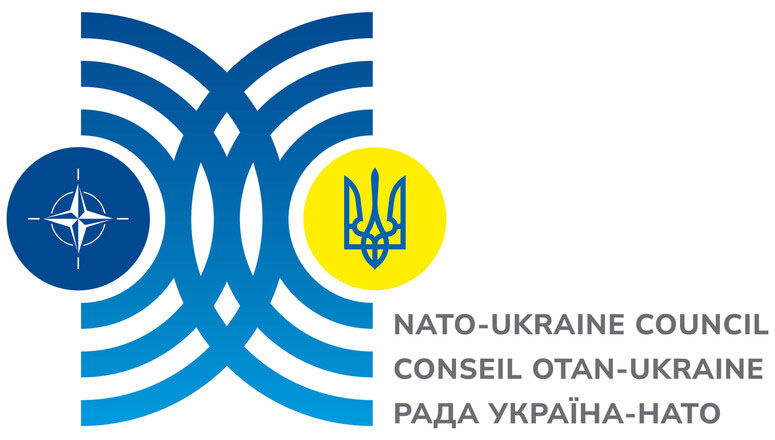Download NATO’s broadcast-quality video content free of charge

Log in
NATO MULTIMEDIA ACCOUNT
Access NATO’s broadcast-quality video content free of charge

Check your inbox and enter verification code
You have successfully created your account
From now on you can download videos from our website
Subscribe to our newsletter
If you would also like to subscribe to the newsletter and receive our latest updates, click on the button below.
Enter the email address you registered with and we will send you a code to reset your password.
Didn't receive a code? Send new Code
The password must be at least 12 characters long, no spaces, include upper/lowercase letters, numbers and symbols.
Your password has been updated
Click the button to return to the page you were on and log in with your new password.
NATO-Ukraine Council
Updated: 07 March 2025
The NATO-Ukraine Council (NUC) is the joint body where Allies and Ukraine sit as equal participants to advance political dialogue, engagement, cooperation and Ukraine’s aspirations for membership in NATO. It provides for joint consultations, decision-making and activities. It also serves as a crisis consultation mechanism between NATO and Ukraine.
The NATO-Ukraine Council was launched at the 2023 NATO Summit in Vilnius as part of a three-part package of support bringing Ukraine closer to NATO. The package also includes a multi-year programme of assistance to help rebuild the Ukrainian security and defence sector and transition Ukraine towards full interoperability with NATO, and a reaffirmation that Ukraine will become a member of NATO when Allies agree and conditions are met.
Individual Allies and Ukraine meet as equal participants in the Council. The Council can convene at the level of Heads of State and Government, Foreign and Defence Ministers, Ambassadors, or at the military level, including Chiefs of Defence.
The inaugural meeting of the NATO-Ukraine Council took place on 12 July 2023 at the Vilnius Summit. The Council met at the level of Heads of State and Government, including the participation of Ukrainian President Volodymyr Zelenskyy.
Historical background: the NATO-Ukraine Commission
The NATO-Ukraine Council replaces the NATO-Ukraine Commission, which was the decision-making body responsible for developing the NATO-Ukraine relationship and for directing cooperative activities from 1997 to 2023. The NATO-Ukraine Commission was established by the NATO-Ukraine Charter on a Distinctive Partnership signed by Ukrainian and Allied Heads of State and Government in Madrid in 1997. Its task was to ensure proper implementation of the Charter’s provisions, broadly assess the development of the NATO-Ukraine relationship, survey planning for future activities, and suggest ways to improve or further develop cooperation. In December 2008, NATO Foreign Ministers decided to further enhance work under the Commission through the development of an Annual National Programme (ANP), to help guide Ukraine’s reform efforts.
The change from Commission to Council in 2023 demonstrates the strengthening of political ties and Ukraine’s increasing integration with NATO. In the Council format, Ukraine sits alongside all NATO member states as an equal participant (rather than NATO Allies meeting a partner, as was the case in the Commission format). The NATO-Ukraine Council takes all its decisions by consensus, meaning that decisions are the expression of the collective will of all its participants.
The Council is chaired and convened by the NATO Secretary General. It can also be convened by any of its members for crisis consultations, including Ukraine. This differs from the previous format, where Ukraine was invited to participate in Commission meetings by NATO.
The role of the NATO-Ukraine Council and the NATO-Ukraine Commission in NATO's support to Ukraine
The NATO-Ukraine Council provides a forum for consultation between the Allies and Ukraine on security issues of common concern, including Russia’s war of aggression against Ukraine.
Following Russia’s illegal annexation of Crimea and military intervention in eastern Ukraine in 2014, the NATO-Ukraine Commission held several extraordinary sessions. On 2 March 2014, Allies and Ukraine convened an extraordinary meeting of the Commission, condemning Russia’s military action against Ukraine. At their meeting in April 2014, Foreign Ministers of the Commission condemned Russia’s illegal and illegitimate annexation of Crimea and stated that NATO and Ukraine would intensify cooperation and promote defence reforms through capacity-building and capability development programmes. The Commission also met at the level of Heads of State and Government at the 2014 Wales Summit and at subsequent NATO summits, reaffirming the Alliance’s support for Ukraine’s sovereignty and territorial integrity within its internationally recognised borders. The Commission continued to meet regularly over the following years, coordinating NATO’s enhanced support to Ukraine.
In January 2022, the NATO-Ukraine Commission met to discuss Russia’s military build-up around Ukraine and within its occupied territories. Several weeks later, the Commission held an extraordinary meeting on 22 February 2022, two days before Russia launched its full-scale invasion of Ukraine. The Allies condemned the further Russian incursion into Ukraine and its flagrant violation of international law, urging Russia to choose the path of diplomacy.
Following Russia’s full-scale invasion of Ukraine and throughout the war, NATO and Ukraine consulted on the security situation and Allied support to Ukraine through the NATO-Ukraine Commission. These consultations continue through the NATO-Ukraine Council.
Sub-structures of the NATO-Ukraine Council
The NATO-Ukraine Council meets in various formats, including in five main sub-committees:
- The Political Affairs Committee – NUC(PAC) – consults on political and security-related subjects.
- The Defence and Security Sector Committee – NUC(DSSC) – oversees the practical implementation of NATO’s Comprehensive Assistance Package for Ukraine, with a focus on the defence and security sector.
- The Strategic Communications Committee – NUC(SCC) – supports Ukraine’s efforts in this area and helps coordinate NATO’s strategic communications approach to and with Ukraine.
- The Innovation and Hybrid Committee – NUC(IHC) – oversees cooperation on innovation, hybrid threats, cyber defence, energy security and environmental security.
- The Military Representatives Working Group – NUC(MR-WG) – exchanges views and discusses the practical implementation of NATO-Ukraine military cooperation, with a focus on the capability development and interoperability of the Armed Forces of Ukraine.
The NUC can also convene informal working groups to address other topics of mutual interest and concern.
All of these sub-structures remain adaptable and may be modified as needed to address any emerging issues or additional areas of cooperation.


